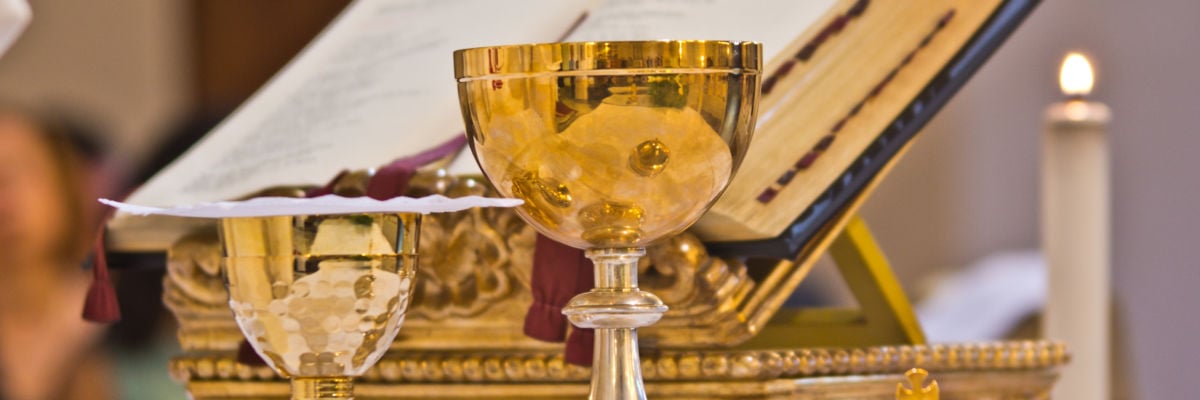
Homily for the Twenty-Eighth Sunday in Ordinary Time, 2021
Peter began to say to him,
“We have given up everything and followed you.”
Jesus said, “Amen, I say to you,
there is no one who has given up house or brothers or sisters
or mother or father or children or lands
for my sake and for the sake of the gospel
who will not receive a hundred times more now in this present age:
houses and brothers and sisters
and mothers and children and lands,
with persecutions, and eternal life in the age to come.”
The riches of the clergy… the wealth of the Vatican…the investments of the Church…
Who has not heard these or similar phrases? They seem to imply that the ministers of the Church have been extorting wealth and means from the faithful, and that whatever losses the Church endures are a only a just punishment for the excesses of its officers.
Well, the Savior has a different view, and one that, given his perfect prophetic vision, is borne out by history.
For Jesus, material possessions are a means and not an end. They are a way of having what is needed in order to do the good things we have to do in this world until we reach the perfect happiness of the kingdom of heaven.
In the old covenant, which was a foreshadowing of the new, the priestly tribe of Levi was the one that did not have a territory among the tribes of Israel. For the priests, their “portion was the Lord’s.” They were to be supported by the rest of the community for the service of divine worship, which they were to perform for the sake of the rest.
Yet they were still men with families and households, with their own wives and children. Their priesthood was not yet the celibate priesthood of the new and eternal covenant.
In the Church of the new covenant, however, the clergy are to be celibate, at least ideally, so as to be as free as possible to serve God according to the rites and teaching of the testament established by Jesus Christ.
Thus the apostles, as Our Lord taught, were to give up “house or brothers or sisters or mother or father or children or lands for my sake and for the sake of the gospel.”
This does not mean that none of the ministers of the Church may be married or own property, not at all. There are and have been married and propertied clergy in East and West throughout the history of the Church. Even so, it does mean that the priesthood itself is meant to be unencumbered by this-worldly personal wealth and concerns of inheritance.
Ultimately, an unmarried clergy is not about abstinence from sexual pleasure. It is not about not being a father or husband. Not at all. In fact, to be a good priest, a man should have the qualities of a good father and bridegroom, otherwise he will not be a suitable minister of the altar.
Celibacy is about poverty—about not having a stake in the goods of this world so as to be able to possess and use them for the good of one’s neighbor. This means not having to amass material means for the good of one’s offspring.
The apostles and their wives adopted a live of common property, of what we would call now religious poverty, so as to devote themselves utterly to the service of divine worship and instruction in the Faith. The innumerable monasteries of the ages of faith in East and West were the result of the combined largesse of married men and women, whose devotion, following the Lord’s words today, led to a Christendom filled with monastic territories.
That is why the Savior’s promise of eternal blessings also includes this phrase “with persecutions.” The history of the Church is precisely the history of the world’s envy of the material benefits of the following of Christ. Leaving all to follow him leads inevitably to the accumulation of property devoted to the service of God and to devout instruction. The world sees this divine business plan and resents it.
The next time you hear a reference to the Church’s wealth, consider that this wealth is the direct result of men and women giving up their means in order to follow Christ. Refuse the secularist hatred of the Church’s wealth. This hatred is not born of a love of poverty or simplicity; it is born of a hatred of the gospel and of the worship established by the Lord for our salvation.
Divine worship and true instruction are things we love. And they cost money to promote. Let us love and be grateful for the “hundred fold” the Savior showers on his Church and its ministers!



